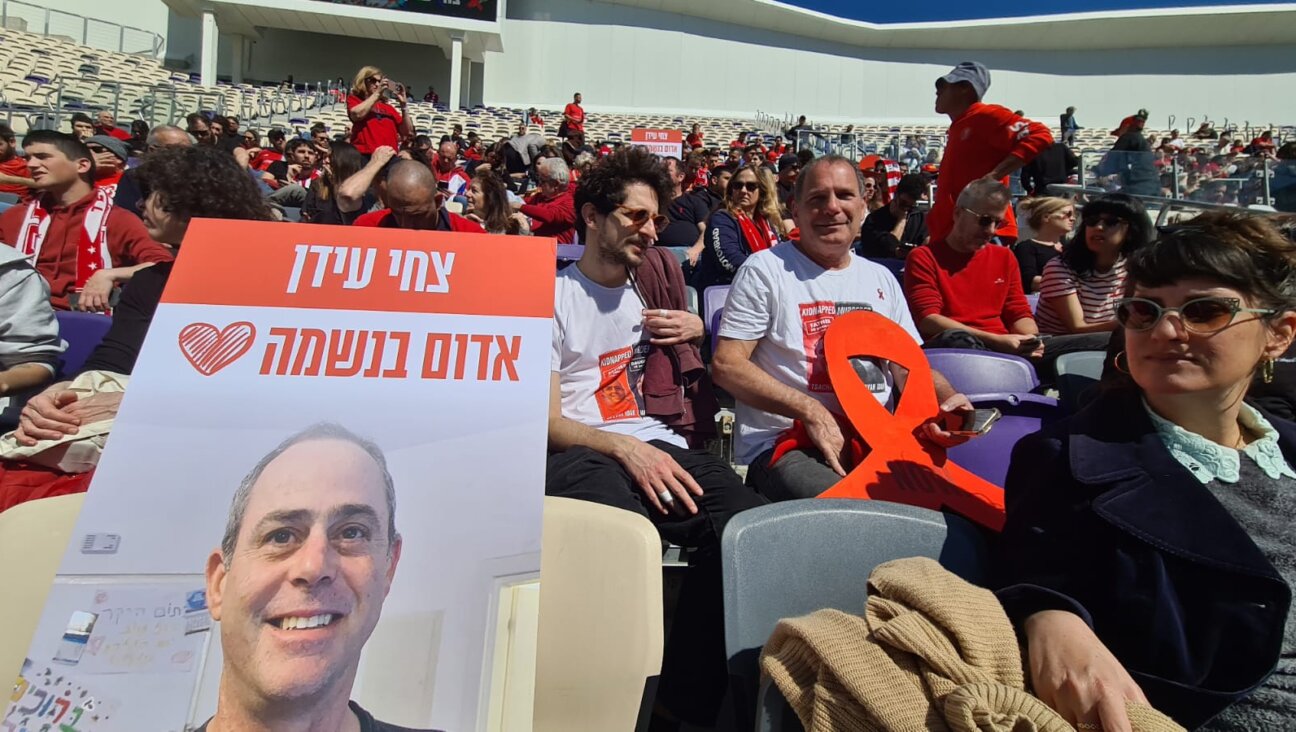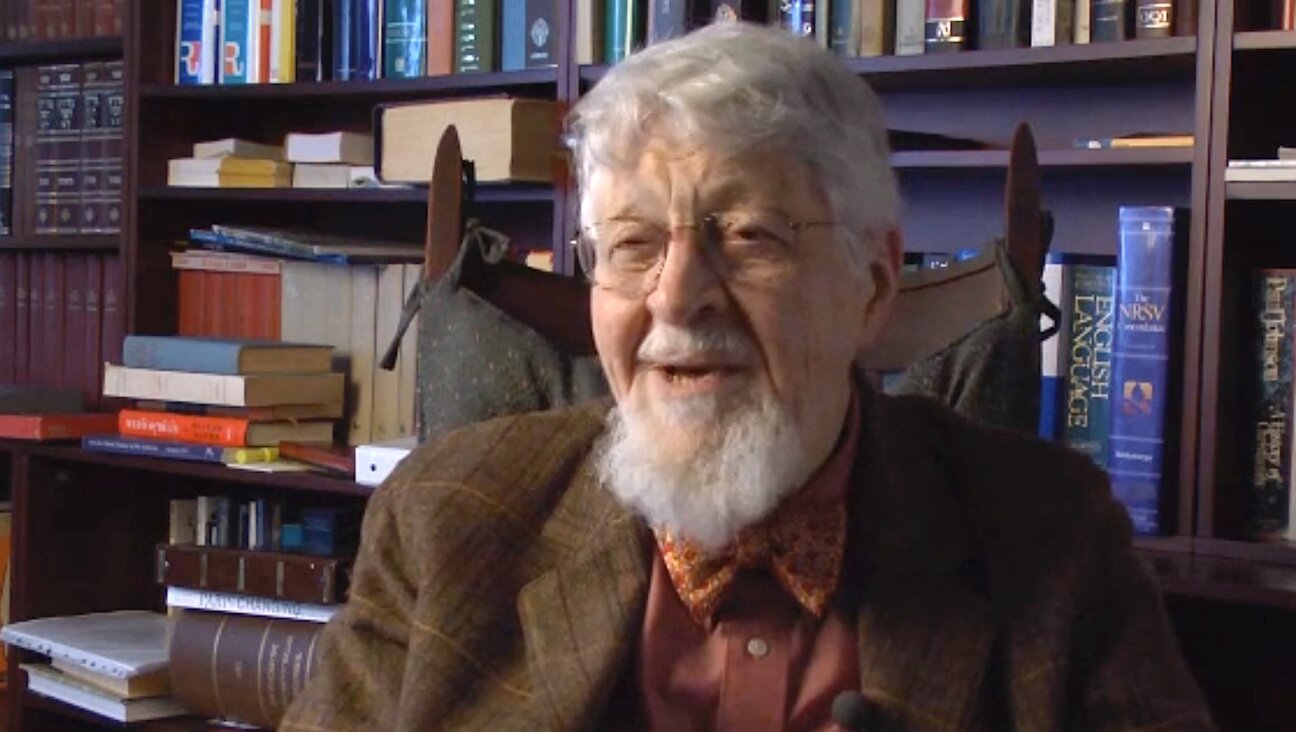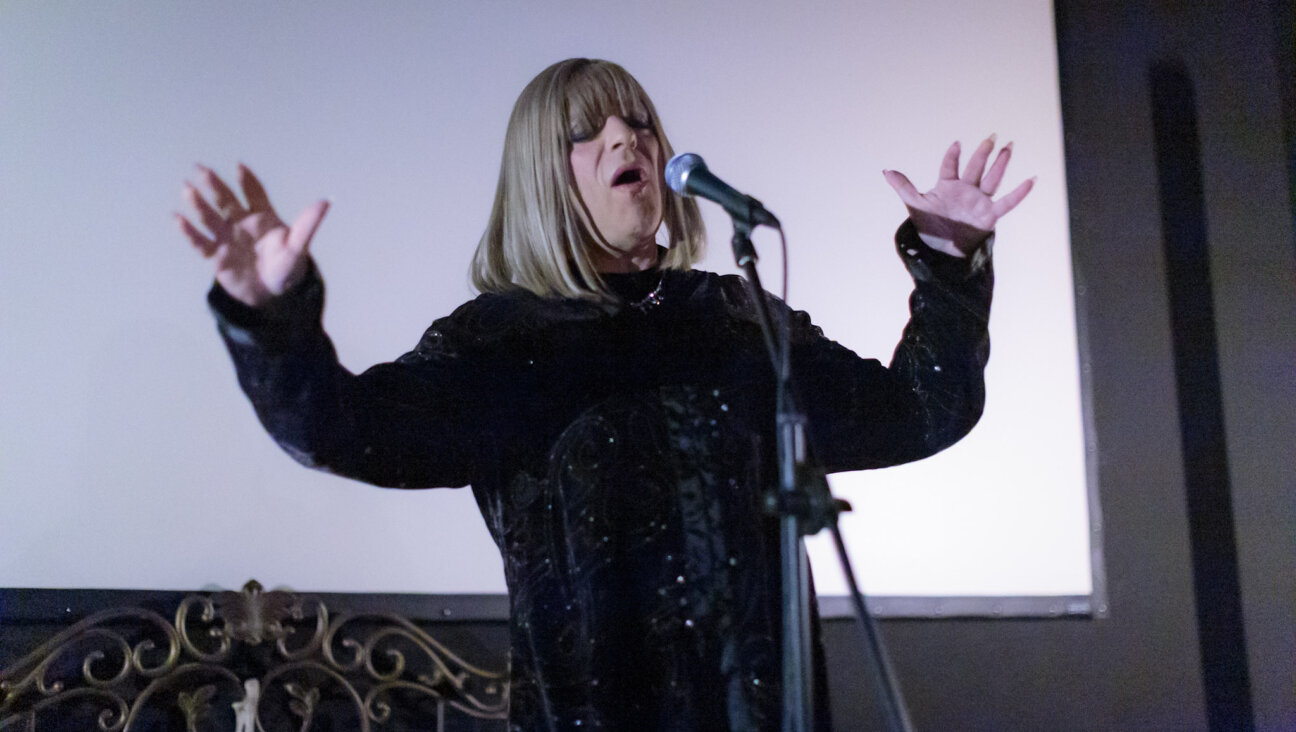Women of the Wall Defy State Ruling To Perform Priestly Blessing at Kotel

Image by Ben Sales/JTA
JERUSALEM — The Women of the Wall held a priestly blessing as part of its monthly service at the Western Wall, despite a by Israel’s attorney general forbidding the practice.
The women also brought a Torah scroll to the Monday morning Rosh Chodesh prayer service, which they have been prohibited from in the past. Some 120 women participated in Monday morning’s service.
Both actions violate traditional customs of the site, and are therefore supposed to be excluded.
Attorney General Avichai Mendelblit last month said he would prohibit a women’s priestly blessing ceremony from going forward during the intermediate days of Passover. In announcing the ceremony, to be held at the Western Wall’s women’s section, Women of the Wall had declared it “the first of its kind.” Tens of thousands of Jews flock to the Western Wall to receive the blessing from kohanim, or descendants of ancient Israel’s priestly caste, during the intermediate days of Passover.
After threatening to hold the ceremony on Passover despite the ruling, the women eschewed the blessing during their holiday service at the Western Wall.
On Monday during prayers for the new month of Iyar, the women brought to wall a 250-year-old Torah scroll brought from Holy Blossom Temple in Toronto, to be used for a women’s Torah reading at the holy site. Police officers attempted to confiscate the scroll, but retreated when the women closed ranks, according to the Women of the Wall.
The group maintains that performing the Priestly Blessing during services for the new month is not a violation of local custom since the blessing is a part of the regular service in Israel.
The Rabbi of the Western Wall, Shmuel Rabinovitch, decried the Women of the Wall’s “divisive actions” in a statement issued to the media. He called criticized the women’s “brazen disregard for the customs of the place and the traditions of Israel and the feelings of the worshipers.”
“These women are insisting on deepening an actual rupture at the Western Wall, the only place that unites the people of Israel from all sectors and from all ethnic groups,” he said in the statement.
A 2013 Supreme Court ruling acknowledged the women’s right to pray at the Western Wall according to their beliefs, claiming it does not violate what has come to be known as “local custom.”
A message from our Publisher & CEO Rachel Fishman Feddersen

I hope you appreciated this article. Before you go, I’d like to ask you to please support the Forward’s award-winning, nonprofit journalism so that we can be prepared for whatever news 2025 brings.
At a time when other newsrooms are closing or cutting back, the Forward has removed its paywall and invested additional resources to report on the ground from Israel and around the U.S. on the impact of the war, rising antisemitism and polarized discourse.
Readers like you make it all possible. Support our work by becoming a Forward Member and connect with our journalism and your community.
— Rachel Fishman Feddersen, Publisher and CEO





























